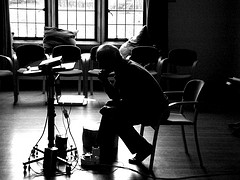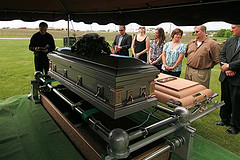Definition Of A Renaissance Man
Since this blog is focused on renaissance men and renaissance living, I thought it might be a good idea to establish exactly what a Renaissance Man is.
First, let’s start with the term Polymath. This term was the predecessor of “Renaissance man” and means the following:
During the Renaissance, Baldassare Castiglione, in his guide The Book of the Courtier, wrote about how an ideal courtier should have polymathic traits. Castiglione’s guide stressed the kind of attitude that should accompany the many talents of a polymath, an attitude he called “sprezzatura”. A courtier should have a detached, cool, nonchalant attitude, and speak well, sing, recite poetry, have proper bearing, be athletic, know the humanities and classics, paint and draw and possess many other skills, always without showy or boastful behavior, in short, with “sprezzatura”. The many talents of the polymath should appear to others to be performed without effort, in an unstrained way, almost without thought [Source: Wikipedia article on Polymath].
Second, the term Renaissance Man itself evolved out of the Renaissance era (14th-17th Centuries). Wikipedia goes into the following appropriate description:
The terms Renaissance man and, less commonly, homo universalis (Latin for “universal man” or “man of the world”) are related and used to describe a man (or woman, as “Renaissance woman”) who is well educated or who excels in a wide variety of subjects or fields. The idea developed in Renaissance Italy from the notion expressed by one of its most accomplished representatives, Leon Battista Alberti (1404–72): that “a man can do all things if he will.” It embodied the basic tenets of Renaissance Humanism which considered man empowered, limitless in his capacities for development, and led to the notion that people should embrace all knowledge and develop their capacities as fully as possible. Thus the gifted men of the Renaissance sought to develop skills in all areas of knowledge, in physical development, in social accomplishments and in the arts.
6 Characteristics
What characterizes a “Renaissance Man” from your regular, run of the mill man on the street? I believe according to the definitions given above, there are six primary characteristics that distinguish these individuals:
- Intelligent. This probably goes without saying, but renaissance individuals are highly intelligent. They are deep thinkers and have very analytical, highly developed brains. They function at a higher level than the majority of the world’s population.
- Knowledgeable. These people have a lot of knowledge in a wide variety of fields. They are voracious readers and absorb a lot of information from a variety of sources. They use this storehouse of information to their advantage as they live out their lives.
- Artistic. Renaissance individuals seem to have an artistic bent at some level. They can sing, play a musical instrument, write, paint, sculpt, dance, or express themselves in some way through the fine arts.
- Physical. These people are athletic. They are in good physical shape. They know how to move their bodies in an almost free, effortless manner. Perhaps they play some type of sport(s).
- Social. Renaissance people have excellent social skills and graces. They are not socially “backward” in their dealings with others. They know how to communicate well with people. They have solid business relationships. They have strong personal friendships and romantic relationships.
- Cool. This is the final piece of the puzzle. These type of individuals take the top five characteristics and pull them off with ease. They are smooth and sophisticated, without coming off as arrogant jerks. They are comfortable with who they are and don’t feel the need to boast of their superiority.
What Characteristics Do You Possess?
After reading through this list of six characteristics, which do you possess – one, some, all? Do you possess a lot of one or two of these characteristics and then maybe some in the other areas? Do you think you can grow in your weaker areas?
In a world that seems to value extreme specialization and focus, is it even a good idea to aspire to the Renaissance Man/Polymath ideal as laid out in the post? I’d be interested in hearing your thoughts on the topic.
Resources: The Book of the Courtier by Baldassare Castiglione.












